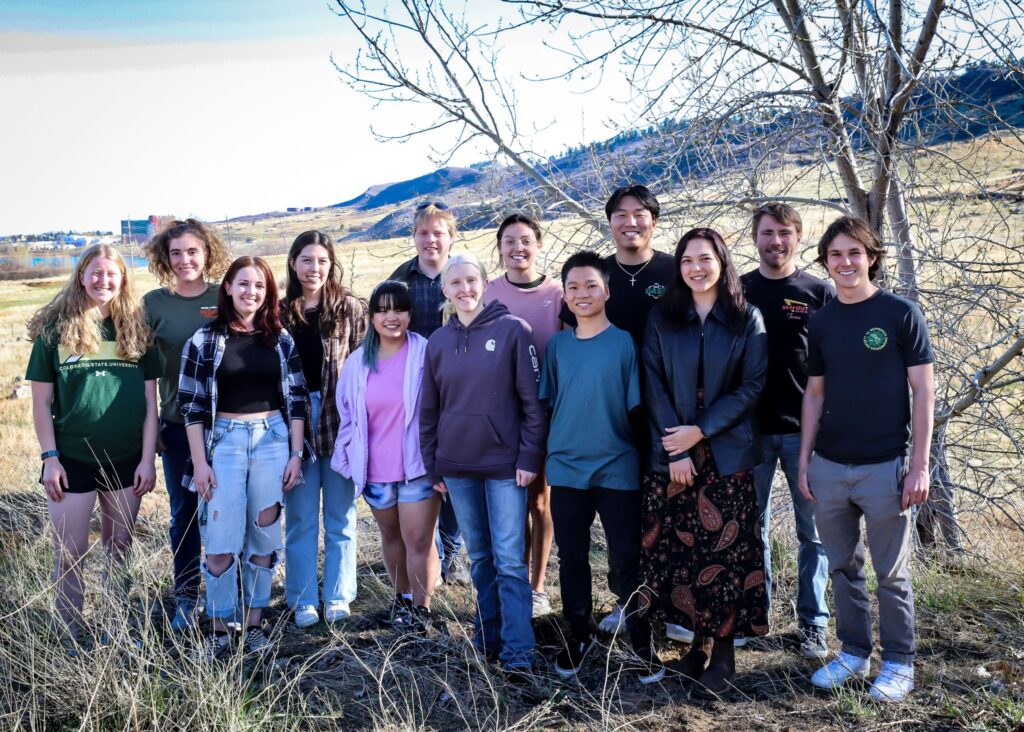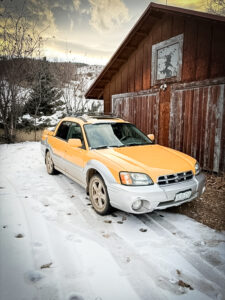
Transportation, especially driving, offers a sense of independence, but it’s often a privilege that is taken for granted. For people like Jian Cohen, a CSU College of Business student born without arms, driving is something he’s only dreamed of doing.
There are foot-steering systems on the market, but they are extremely cost-prohibitive, especially for a college student.
That is until the CSU Biomedical Engineering Society (BMES) student chapter came along.
In 2022, the Controls and Steering Engineering (CASE) project was started by the CSU BMES student chapter to help Cohen get on the road while offering an experiential learning opportunity for biomedical engineering students.
The hope is that the project will become an immersive student experience to help create and shape the future engineers of tomorrow, 100 percent student-created and promoted.
During E-Days last year – on April 24, 2023 – BMES chapter students set up a customized racing simulator that was hooked up to a monitor for people to “test drive.”
The students were later invited to present their CASE project at the National BMES Conference in Seattle last fall. They talked about challenges of the project and next steps and offered advice to other BMES chapters looking to start engineering projects.

This year, the BMES Chapter received a donated car to take the project to the next step.
When originally looking for a car, students were hoping for an early 2000s Japanese-manufactured vehicle that would offer more flexibility to test and add their foot-controlled steering system. As luck would have it, an anonymous donor interested in the project had just what they were looking for to help take the project to the next level.
Meet “Tweety,” a 2003 yellow Subaru Baja and the next big step in the CASE project. Tweety was hauled to CSU to be featured on the LSC plaza during the 2024 E-Days on Friday, April 19. Though the weather wasn’t favorable, the students rented a U-Haul and brought Tweety to the LSC Plaza where they talked about the project and let visitors take a closer look.
Making Tweety Driveable
BMES students have adjusted their designs to fit the geometries and existing steering and control systems associated with the Baja.
“The Controls team has been busy fabricating their adaptive, adjustable, and modular control panel, which has been affixed to the car’s center console, said Ian Lohrisch, BMES student chapter president who has worked on the project for the last two years.
“In terms of electrical work, we’ve started tapping into the existing wiring harnesses to integrate our components in parallel.
“After receiving additional parts, our team started manufacturing and installation. Then, we placed one final order to ensure our design integrates well with the car’s original steering system.”
What’s next for Tweety and the CASE Project?
“The hope is that CASE will always be a project within BMES that focuses on improving accessibility through engineering,” Lohrisch said. “With Tweety in our possession, the opportunities for this are limitless: from making the seatbelt easier to put on, to integrating holders for prosthetics.”
Students hope that CASE will continue to inspire engineering students to prioritize accessible transportation for the future, including biking and other modes of transportation, and aid in training engineers who want to see that mission come to fruition.
How to get involved
The BMES student chapter offers hands-on project experience related to biomedical engineering, networking with industry, and engaging with the community. The chapter communicates with the School of Biomedical Engineering and industry to provide opportunities to members including positions in labs, internships, networking, and academic events. Through BMES chapter participation, students learn from peers, faculty, and industry to improve themselves professionally and academically. All majors are welcome.
To learn more about the CASE project or become a sponsor to help push the project to the next level, visit the BMES website.